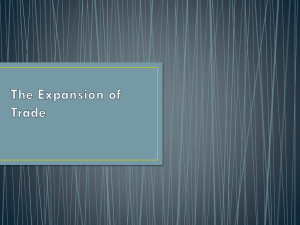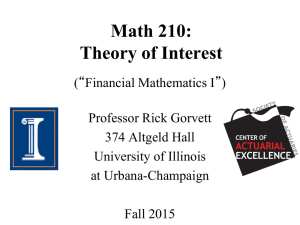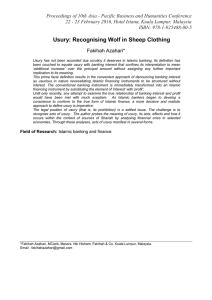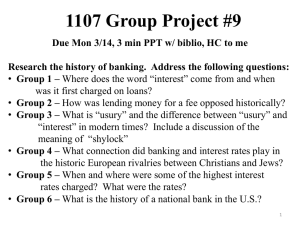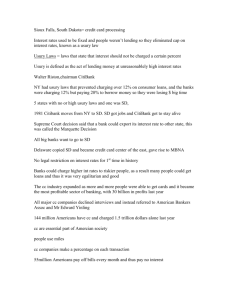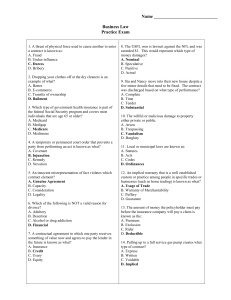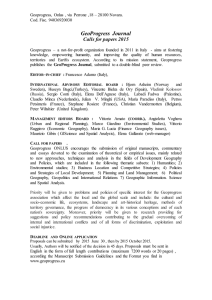Question for written answer Z-000008/2014 to the European Central
advertisement
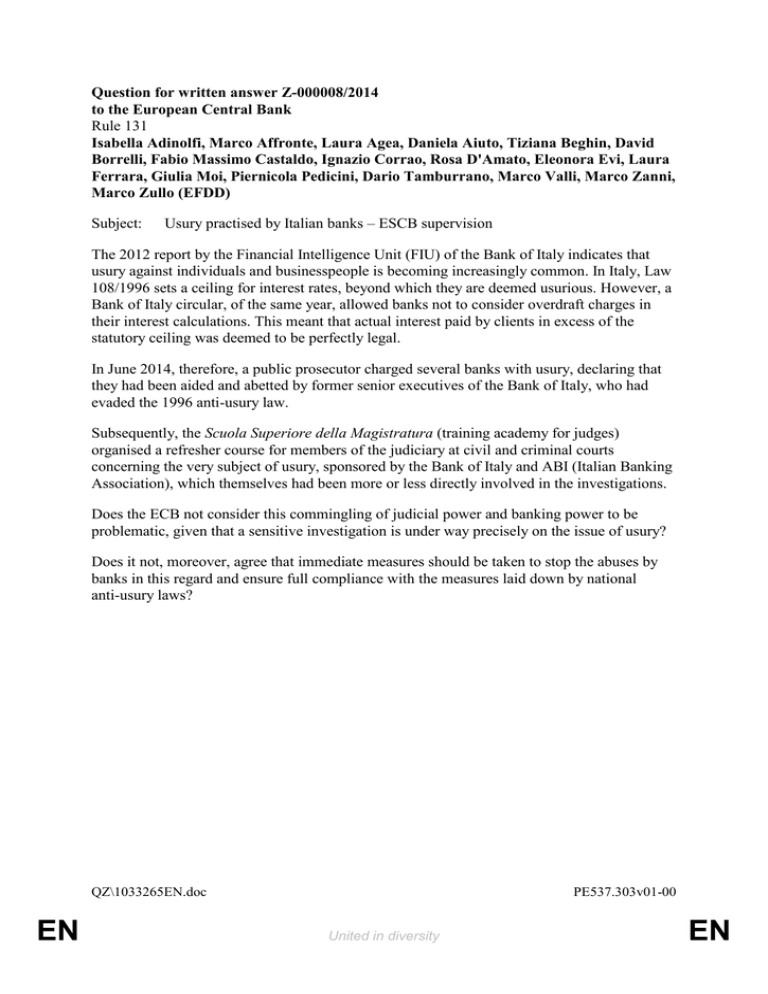
Question for written answer Z-000008/2014 to the European Central Bank Rule 131 Isabella Adinolfi, Marco Affronte, Laura Agea, Daniela Aiuto, Tiziana Beghin, David Borrelli, Fabio Massimo Castaldo, Ignazio Corrao, Rosa D'Amato, Eleonora Evi, Laura Ferrara, Giulia Moi, Piernicola Pedicini, Dario Tamburrano, Marco Valli, Marco Zanni, Marco Zullo (EFDD) Subject: Usury practised by Italian banks – ESCB supervision The 2012 report by the Financial Intelligence Unit (FIU) of the Bank of Italy indicates that usury against individuals and businesspeople is becoming increasingly common. In Italy, Law 108/1996 sets a ceiling for interest rates, beyond which they are deemed usurious. However, a Bank of Italy circular, of the same year, allowed banks not to consider overdraft charges in their interest calculations. This meant that actual interest paid by clients in excess of the statutory ceiling was deemed to be perfectly legal. In June 2014, therefore, a public prosecutor charged several banks with usury, declaring that they had been aided and abetted by former senior executives of the Bank of Italy, who had evaded the 1996 anti-usury law. Subsequently, the Scuola Superiore della Magistratura (training academy for judges) organised a refresher course for members of the judiciary at civil and criminal courts concerning the very subject of usury, sponsored by the Bank of Italy and ABI (Italian Banking Association), which themselves had been more or less directly involved in the investigations. Does the ECB not consider this commingling of judicial power and banking power to be problematic, given that a sensitive investigation is under way precisely on the issue of usury? Does it not, moreover, agree that immediate measures should be taken to stop the abuses by banks in this regard and ensure full compliance with the measures laid down by national anti-usury laws? QZ\1033265EN.doc EN PE537.303v01-00 United in diversity EN
